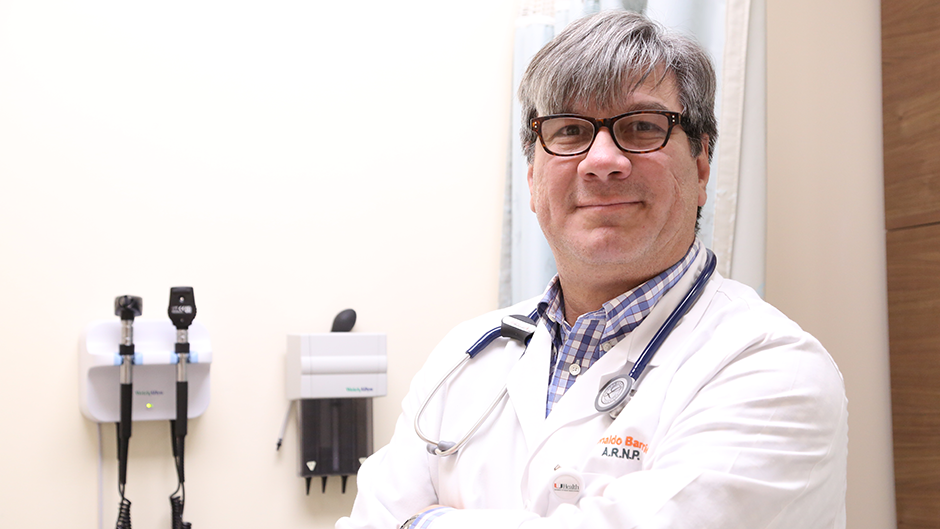With more than 27,000 visitors each year to its location in the Lennar Foundation Medical Center, the University of Miami’s Student Health Service is consistently abuzz with students feeling under the weather. But even with all of this foot traffic, the SHS team works hard to provide a high standard of care to UM students – and this work is paying off.
According to Princeton Review’s recent list of Best Health Services on college campuses, UM came in at number eight. This ranking was derived from responses to "How do you rate your school's campus health services?" in a recent survey of 140,000 students from 385 colleges and universities nationwide.
When asked what he believes led to this ranking, Dr. Howard Anapol, director of SHS, cited his team’s blended approach of using data and building connections with students.
“With so many visitors throughout the year, data is important so we can identify trends as they appear,” he said. “But in addition to data, it really is about people. Putting together a team that is genuinely concerned about students and that works well together is equally or more important to our success.”
SHS provides a wide variety of health care services to UM’s undergraduate, graduate, law and medical students regardless of whether or not these students have UM’s student health insurance plan. The most common visits are due to musculoskeletal injuries, asthma and allergies, testing and prevention of sexually transmitted diseases, and common respiratory illnesses.
After each visit, students are sent a survey to provide feedback to the SHS team. Dr. Anapol, who is also an assistant professor of clinical medicine at the Miller School of Medicine, uses the results to get a sense of the student experience and to identify and address potential problem areas.
“We recently re-engineered our process related to how we provide immunization to new international students,” he said. “Overnight we were able to identify and solve a problem based on student responses to our survey. The next day we saw student feedback dramatically improve.”
But in addition to identifying trouble spots, student responses to these surveys also demonstrate how SHS’s staff contribute to UM’s top 10 ranking in Princeton Review.
“To be extremely honest I never ever fill surveys but the entire staff [is] great and professional. They are fast, helpful and caring,” wrote one student.
And another student praised their health care provider by writing, “With each visit, [I feel that] I am being heard as a patient."
But Dr. Anapol recognizes that not every student walks away with the same feelings.
“Sometimes people just don’t connect with a medical provider for whatever reason,” he said. “But we always want to hear what students have to say and use this feedback to continually improve.”
Student health and wellness is a priority for the Division of Student Affairs and the University of Miami. More information about the Student Health Service can be found at miami.edu/student-health.

